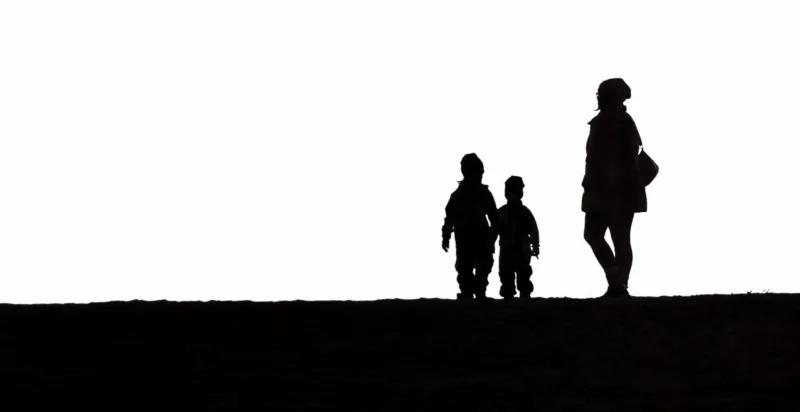
Table of Contents
What should be the minimalist approach to a career?
The thoughts on the minimalist approach to a career are largely distinct.
Considering that minimalism is a philosophy set on maintaining what’s valuable, it’s fair to say that the most minimalist approach for a career is definitely pursuing a career or finding a job that makes you feel fulfilled in some way. The main focus on choosing a career or a job should be what makes you happy, what brings value to your life, what makes your life meaningful. By choosing a job that you enjoy, you’ll be aligning your professional life with your minimalist lifestyle.
Being intentional about your career or job choices can’t alienate the fact that there are bills to pay. Thus, a minimalist approach for a career, essentially, is one that you can get some kind of enjoyment out of while minimizing stress on bills. You don’t have to obsess about making the most money you can – that’s not minimalist at all – what should really be on your mind is choosing a career that allows you to make enough money so that you can have a comfortable life.
There are, however, other aspects that can make a specific job or career minimalist.
Work stays at the workplace
For some, a minimalist approach for a career is entirely about not bringing work home. We work to live, not the other way around, so it’s important that when you clock out, you leave the business things and preoccupations at the workplace. Whether you have a family waiting for you at home or not, your time is your time and you’ve got the right to enjoy it freely.
Flexibility
Flexibility can be a decisive factor in approaching a career as a minimalist. Flexibility allows you to design your lifestyle by planning your schedules. Owning your own business is considered by many to be the best chance of having a flexible job, meaning that being your own boss is a minimalist career.
Working remotely
Working remotely – digitally – means no paperwork, no cluttered space office, and having control over your schedule: a minimalist dream! Working remotely provides you with the peacefulness of working at home by eliminating the stress of morning traffic, office politics, worries regarding societal expectations, and petrol bills.
Less to no commute
For some, spending less time commuting to reach the workplace means that your job is minimalist.
No need for institutionalized learning
Institutionalized learning might be a synonym of lack of freedom for some. Learning by yourself allows you to develop skills at your own rhythm with the pressure of being evaluated by possibly biased parties. Moreover, currently, having a degree isn’t a synonym of professional and consequent financial success, as it used to be in the past. Self-taught professionals do prove to be as capable as those who go through specialized schools to learn a skill. In the field of arts, it’s common to see self-taught painters and musicians. This doesn’t, however, apply to all fields. Obviously, you cannot be a self-taught doctor or lawyer.
Responsible jobs
A minimalist job can be one that aligns with the minimalist lifestyle, like working in an eco-friendly company and not being part of an industry that produces junk like $1 toys or unnecessary disposable things is. Moreover, it should be a job that pays well enough to afford to make eco-friendly choices daily.
Nature
For some, a minimalist job is one that allows you to be in contact with nature by working outdoors.
Minimalist jobs

Although the thoughts on what makes a job or career minimalist diverge, here are some jobs that are most commonly associated with minimalism:
Substitute teacher
Substitute teachers get the pleasure of teaching, interacting and helping kids without the correction, the planning, dealing with parents, the work brought home, the committees, and the general stress of the job. Moreover, if you don’t want or need to work, you then simply don’t accept a sub job that day.
Gravedigger
Gravediggers work by themselves most days and use simple tools. The job isn’t precarious and the salary is decent. Additionally, it’s an outdoor job.
Independent software developer
All you need is a laptop and internet. You can use a local coffee shop or library with free Wi-Fi so you don’t have to pay for internet at home.
UX designer
As a digital job, it’s quite simple and clutter-free. All the work’s on a laptop and the workers help design things that are minimalist and easy to use.
Park Ranger
To be in contact with nature, being a Park Ranger is a great option. Sadly, the salary isn’t enough to have a comfortable life.
Freelancer
Freelancers have the freedom to set up and control their work environment, their workflows, their business decisions, and their expenses, which allows them to have it as minimalist as they want.
Literature-based career
Be it writing, reviewing or editing, jobs or careers related to literature are usually minimalist because they can be done from home, where you’re free of stress and you control your time and space.
Science, Technology, Engineering, and Math careers
These careers are also piles-of-paper-free, which is a big step towards minimalism. All the work is generally kept in a computer and if there’s work in a lab, there’s an opportunity to stay in a fairly sparse area.
Home practice
Being able to have an office at home is quite minimalistic. For example, to avoid paying two rents, psychiatrists usually set an office at home and receive their patients there.
Remote telemarketing
There’s no need for a car to get to/from work, no need to dress up well for work, no need for packing a lunch and/or going to the coffee shop. It can be crumby work, but there’s the possibility to live a simple life in a tiny studio apartment with only a bed & shelf/stand for the phone/computer, and a glass of water to sip while working.
Commercial fisherman for a season
As a fisherman, there’s no access to the internet, there’s no commuting – well, there’s no stress from the city life.
Minimalist work Ethic

A minimalist work ethic doesn’t have to be all that different from a regular work ethic. It does, however, matter to confront minimalist work ethic and capitalist work ethic.
As an essentialist philosophy, minimalists perform essential tasks at work. Extra work that is meant to be taken home, extra hours – extra anything, really – isn’t part of the minimalist lifestyle. Jobs or careers should be looked at as tools to survive. There is, yet, freedom to do as one wishes. Some minimalists can be focused on their career if that’s what adds value to their life whereas other minimalists may look at their jobs as simply jobs (some may even dismiss the idea of having a career since it requires a professional commitment and investment of time.
What is Work Ethic?
For what concerns this article, work ethic is the set of values-centered on the importance of work and manifested by determination or desire to work hard. Work ethic is believed to strengthen character.
Work ethic is characterized by 6 general factors:
- Focus: channel your energy to activities in the areas in which you can make a difference, but never lose track of your responsibilities. channel your energy to activities in the areas in which you can make a difference, but never lose track of your responsibilities.
- Set goals and organize your work with those goals in mind: It is not about calculating every next logical step; it’s about getting things done so that the work invested wouldn’t be counter-productive.
- Have a strong sense of responsibility: the task should be done well, you should be vigilant and organized.
- Be available and reliable.
- Create a rewarding system: find strength and energy through activities or tasks and transfer that energy and task to your ultimate goals, creating a habit and a habitat for success.
- Embrace positivism: take what might be faced as a problem and tackle it with your best attitude.
Capitalist view on work ethic
Essentially, the capitalist work ethic is grounded on greed and censorship. In the capitalist system, time is money – a day without working is a day wasted because there was no profit, and simple human-like expression can even be suppressed.
The grind culture and hustle culture are behind the capitalist work ethic so that you’re manipulated into producing insane amounts of stuff. Many times, the capitalist work ethic leads to workaholism and a negative relation with leisure activities that help you achieve peace of mind.
Final notes
To put minimalism as a lifestyle and careers in the same realm is a difficult task because there doesn’t seem to be compatibility. We often find ourselves separating our personal lives from our professional lives while simultaneously letting professional life affect personal life. If our life is a minimalist one, then we can apply our minimalist habits in our workplaces as well.
Feel free to leave a comment if you have any questions!


